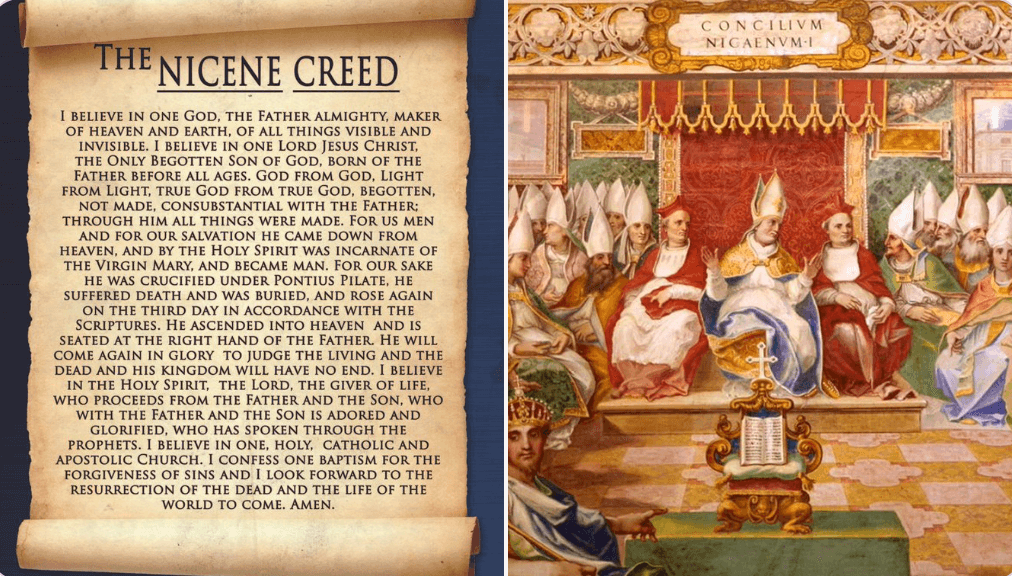I believe in One God, the Father almighty, maker of heaven and earth…

Today marks the 1700th anniversary of the Council of Nicaea, which produced the Nicene Creed. This ancient “statement of faith” was, and is, an expression of unity among believers who hold to a common faith.
Unity is an essential aspect of what it means to be the Church, and it’s what Christ prayed for in John 17:
“I do not pray for these alone, but also for those who will believe in Me through their word; that they all may be one, as You, Father, are in Me, and I in You; that they also may be one in Us.”
The world before Christ, and the world today outside of Christ, is fractured by countless divisions. In the book of Ephesians, St. Paul lists several, including men and woman, jew and gentile, and master and servant.
But in Christ Jesus, all divisions are reconciled. When a believer enters into the faith, they are joined to the One Body of Jesus Christ—the “New Man” that Paul describes in Ephesians:
“For he himself is our peace, who has made us both one and has broken down in his flesh the dividing wall of hostility… that he might create in himself one new man in place of the two, so making peace…”
This new man, His Body, is the Church:
And yet, despite this calling, the Body of Christ is tragically fragmented in our present day. A house divided cannot stand, and our disunity weakens our witness and undermines our mission perhaps more than any other obstacle.
Christ said, “By this shall all men know that you are my disciples: if you have love one for another.”
Our unity is our witness. The reconciliation of all men and women in the one Body of Christ, the Church, is our mission. This is the good news that Christ has called us to bring to a fallen world.
Perhaps today, on this 1700th anniversary, you can take a moment to reflect on the creed that unified our forefathers in the faith, and pray for unity in our time.
